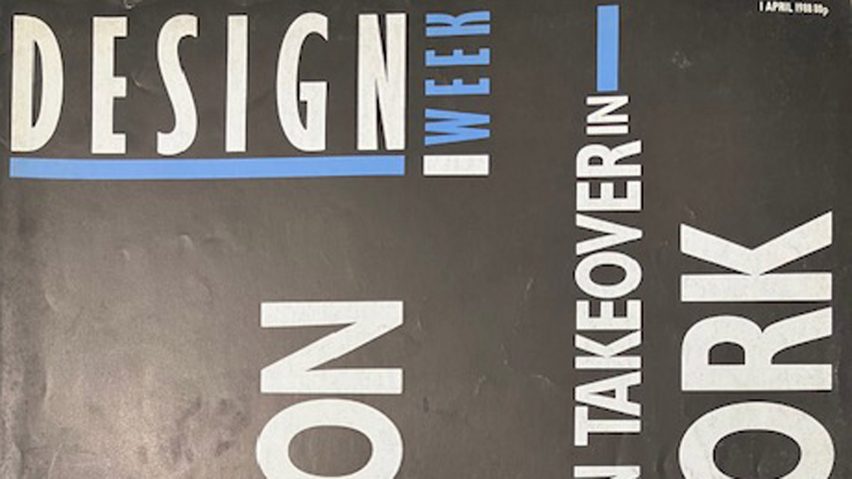Online design magazine Design Week is to cease publication with the website due to be taken offline in mid-January.
The publication, which is focused on the business of design, announced the decision with a statement on its website on 22 December stating that its publisher had decided to close the publication.
"Design Week is ceasing publication with immediate effect," said the statement.
"Design Week's parent company, Centaur, has made the decision to close the publication as its strategy shifts towards its 'core audience of marketers, and focuses on training, information, and intelligence'."
According to the statement, Design Week will continue to be online until 19 January, with a series of articles looking "back at Design Week's achievements" set to be published early this January.
Closure "not entirely unexpected"
Launched in 1986 by writer Jeremy Myerson, who is now professor emeritus at the Royal College of Art, the publication was the first weekly magazine in the UK aimed at designers and their clients.
Responding to the news that the magazine was closing, Myerson said it "was disappointing news to hear on a personal level", but "not entirely unexpected".
Design Week published its last physical edition in 2011, becoming a digital-only publication after that.
"Design Week really belonged to a world of black and white print, manual typewriters and paste-up galleys, an era when a weekly newspaper full of stories and jobs for professional designers was a ground-breaking idea," Myerson told Dezeen.
"In 1986, architects had two weekly papers – AJ and Building Design – and ad agencies had one – Campaign. Designers had none and Design Week changed that."
"Intensification of the London design scene was partly due to Design Week"
Over its 38 years, Design Week had a huge impact on the UK design industry.
"Design Week really helped to build the professional status of graphic, industrial and interior designers in the UK, especially when Lynda Relph Knight, a brilliant contributing editor who worked on the launch and who became my long-term successor, was at the helm," explained Myerson.
"Design firms flexed their muscles as businesses through the pages of the magazine," he continued. "Many became public companies and went on to acquire design groups internationally."
"There's no doubt that, in the late 1980s, the scaling and intensification of the London design scene was partly due to Design Week – the ability to hire talent at speed plus the visibility that editorial coverage gave to those doing the hiring. I've lost count of the number of people who have sidled up to me at parties and said 'I got my first job through Design Week'."
"UK-centric journal made sense in the 1980s"
However, Myerson also accepted that a publication like Design Week may not make sense in 2024.
"I think it [the closing] shows how print-based magazines can struggle to adapt to the demands of digital 24/7 publishing," he said,
"It also shows just how global design has become. A UK-centric journal made sense in the 1980s at a time when Centaur, the publisher of Design Week, was an innovator and a risk-taker. Not today, it seems."
Design Week is the latest UK design magazine to close, with Blueprint magazine, which was launched in 1983 by Peter Murray and Deyan Sudjic, ending its print edition in 2020 after 37 years.
The photography is by Jeremy Myerson.

